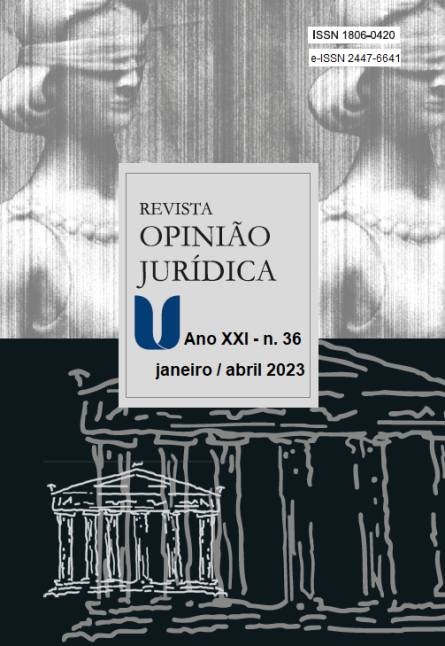MISSION-ORIENTED DEVELOPMENT FROM THE PERSPECTIVE OF THE BRAZILIAN ECONOMIC CONSTITUTION
DOI:
https://doi.org/10.12662/2447-6641oj.v21i36.p32-54.2023Keywords:
economic constitution, development, mission neostructuralismAbstract
Objective: The article seeks to identify what would be the institutional assumptions for the construction of a new development model that is compatible with the normative discourse of the Economic Constitution considering its constitutionally adopted ideology.
Methodology: The documentary research followed the substantial analytical method based on the theoretical framework of the "constitutionally adopted ideology", developed by the pioneer of Brazilian Economic Law, Professor Washington Peluso Albino de Souza.
Results: It is concluded that the neostructuralist model of missions can be reconciled with the dictates of the Brazilian Economic Constitution, within a new developmental project, considering the ideological plurality of the constitutional text and the alternatives for national development.
Contributions: The mission-oriented neostructuralist model presents itself as an effective alternative to the neoliberal austerity model for national development, with a focus on income distribution and social investments, in order to improve the lives of the Brazilian population, being fully compatible with the constitutional dictates of planning, development, productive pluralism and the universalization of human dignity.
Published
How to Cite
Issue
Section
License
CESSION OF COPYRIGHTS
The submission of articles to analysis for publication on Opinião Jurídica implies the author(s) transfers copyrights to Centro Universitário Christus – UNICHRISTUS for reproduction, publicizing, distribution, printing and publication, according to the Publication Norm 414R, Opin. Jur., Fortaleza, year 12, n. 16, p.1-414, Jan./Dec. 2014, costs to be bore by UNICHRISTUS, in whatever format or means that may or shall exist, in accordance to articles 49 and following of Federal Law 9.610/98.
1. In ceding copyrights, the author(s) agrees to do so in exclusivity, free of charge and for the totality of the work.
2. UNICHRISTUS may make the work, in its entirety or in parts, available for scholarly purposes, without altering its contents, except for small corrections that are deemed necessary.
3. The cession of copyrights is valid in all countries and for versions of the material in its original language or translated into a foreign language.
RESPONSIBILITY FOR THE CONTENT
By submitting an article, the author(s) declare to have sole responsibility for the content of the piece and is(are), therefore, responsible for any judicial or extrajudicial measures referring to it.
1. In case of joint authorship, all authors are considered collectively responsible, except when proved otherwise.



















